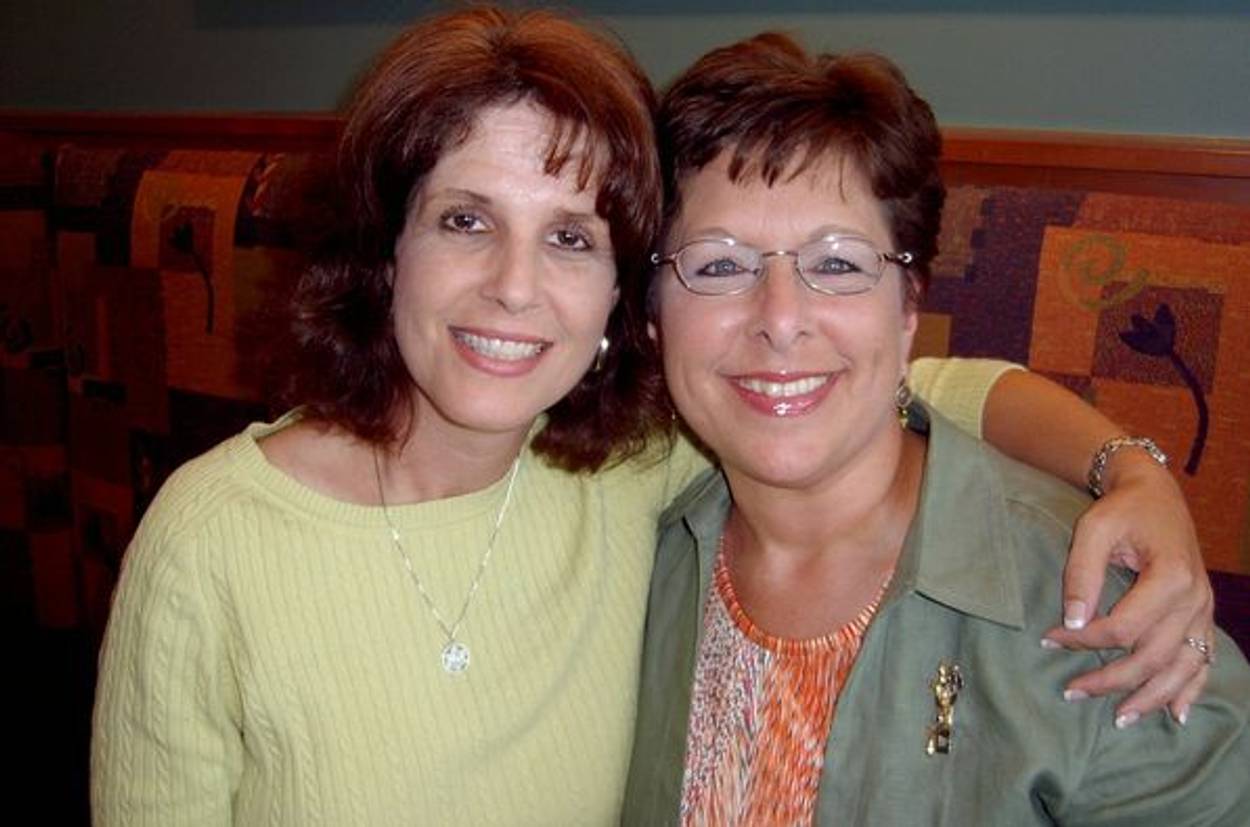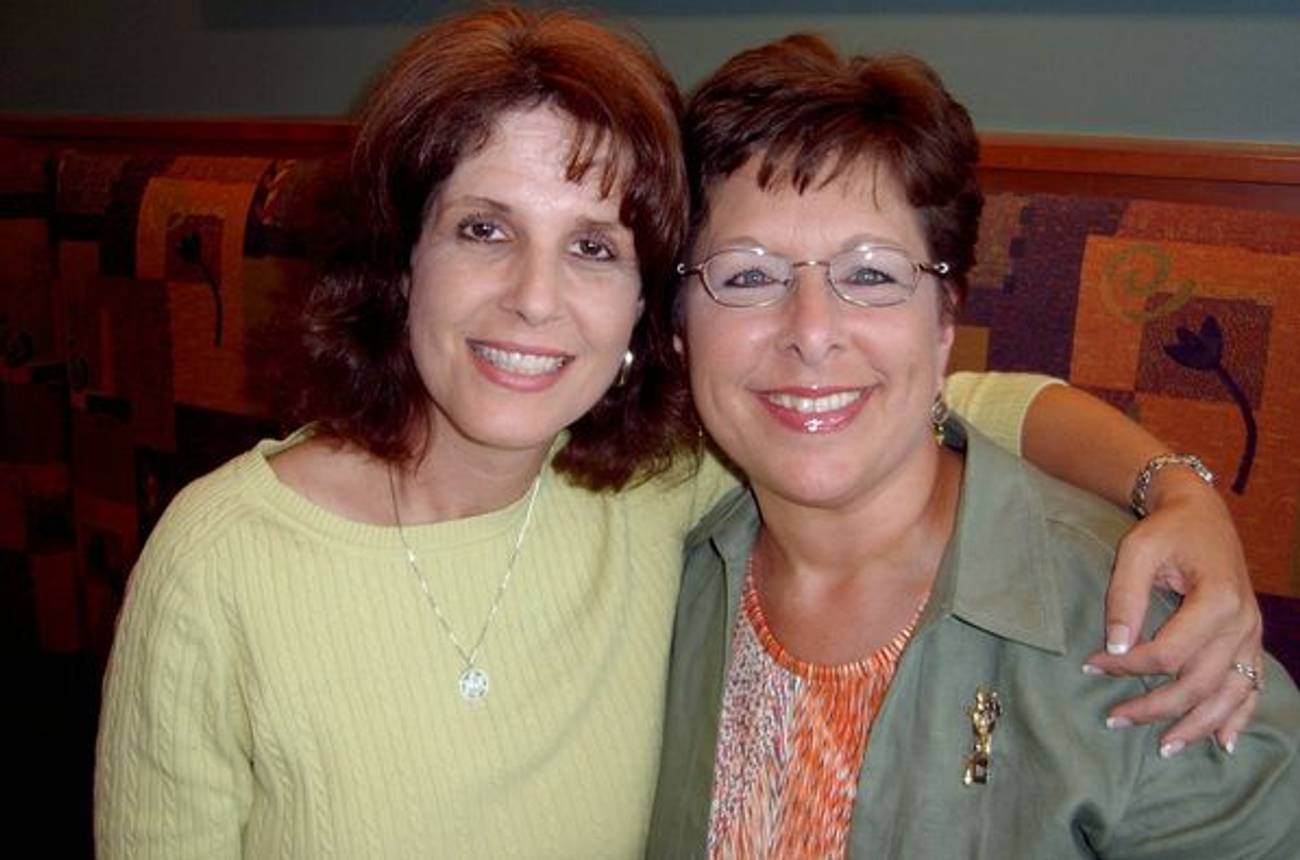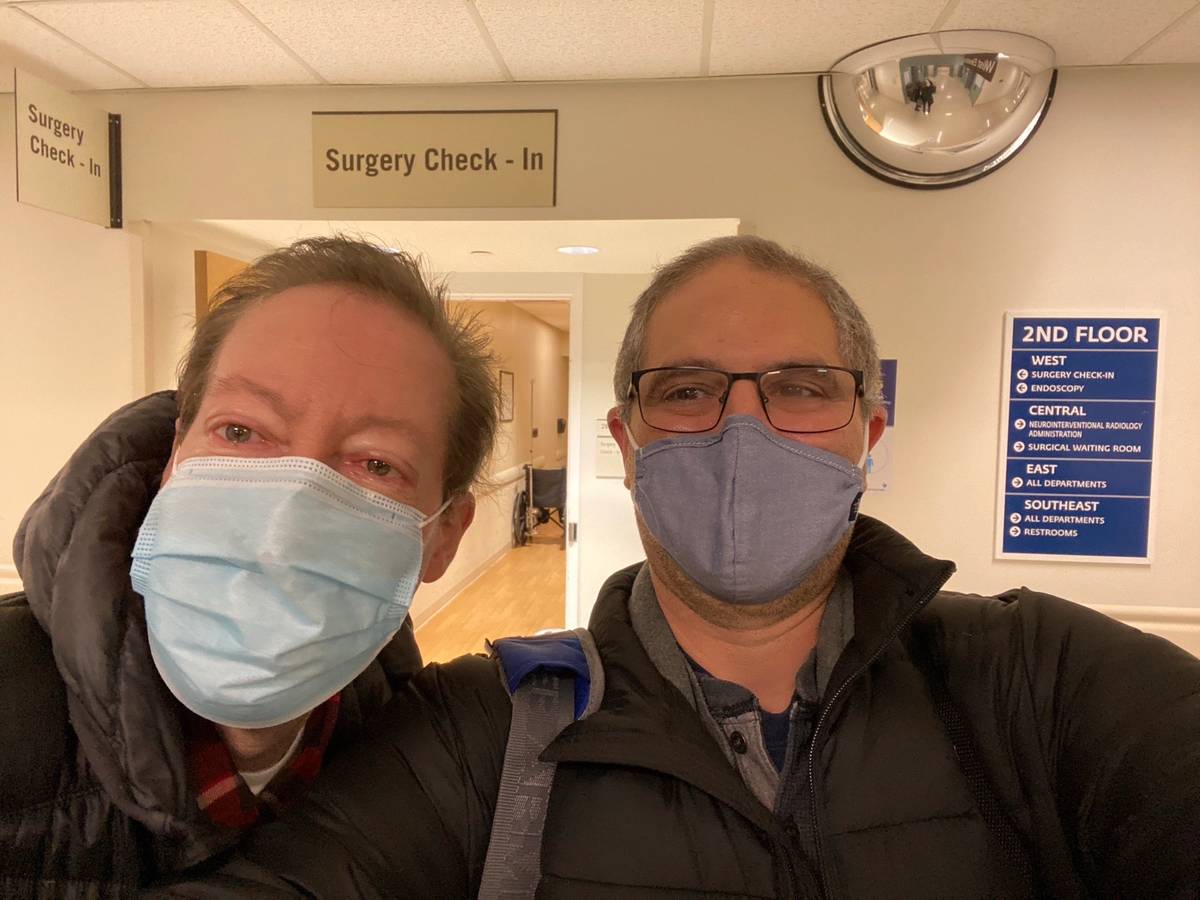To Save a Life
Community groups educate Jews about organ donation




Eighteen years ago, Jeremy Brody donated a kidney to his father Baruch, who had lost kidney functionality after years of declining health. “It gave him 14 extra years of life, enabled him to be part of family s’machot [celebrations], continue to teach, travel, and be with my mom,” said Brody, whose father died in 2018 from unrelated causes.
Not everyone, however, has a blood relative able to donate an organ. In January, Aaron Sirkman, a 30-something New Yorker, learned he needs a transplant because his kidneys are functioning at 11% capacity; his family is medically ineligible to donate. Given his advanced kidney disease and the three-to-five-year average wait on the national transplant wait list, Sirkman is in dire need of a living donor.
Spearheading a communitywide campaign on his behalf is Larchmont Temple, the Reform congregation in Larchmont, New York, where his father, Rabbi Jeffrey Sirkman, is spiritual leader. A congregant connected Aaron with LiveOnNY, the only organ procurement organization in the Greater New York City area; it works with the United Network for Organ Sharing, which manages the U.S. transplant system. More than 40 Jewish community members—congregants, Union of Reform Judaism’s Camp Eisner staff, and Hebrew Union College students—volunteered to be tested. Donors are matched by such factors as compatible blood type, and undergo extensive medical and psychological testing. As of this writing, a match is still needed.
This situation is not unique. Other Jewish transplant candidates are also seeking live donors within their spiritual community. Because saving a life is a supreme Jewish value, community institutions are also actively educating their members about how Judaism views organ donation. “It is truly pikuach nefesh because we all have kidneys or something that can perpetuate life,” said Rabbi Ellen Wolintz-Fields, executive director of the Women’s League for Conservative Judaism, which has conducted organ donation programs. “You never know what you can do to help someone for the future.”
For Jeanette Brownstein, a synagogue sisterhood connection provided the gift of life. In her early 50s, she needed a kidney transplant due to deteriorating polycystic bilateral kidney disease, a genetic disease where both kidneys fill with cysts. Seeking a live donor, Brownstein contacted friends, family, and her community at Congregation Beth Shalom, a Conservative synagogue in Clearwater, Florida.
Right after a potential match was medically disqualified, Brownstein crossed paths in the synagogue lobby with Renée Feinman, a fellow sisterhood board member, who said, “Hey, I heard you need a kidney.”
“I told her I am the healthiest 48-year-old I know—how about I give you my kidney?” Feinman recalled. “She told me to go home and discuss it with my husband.” Feinman was subsequently identified as a match. Since March 16, 2006—the date of the transplant surgery—they have spoken about organ donation to Hadassah and sisterhood groups and at the synagogue’s Organ Donation Shabbat.
“There are no words to express my gratitude to Renée,” said Brownstein. “These are 16 healthy years that wouldn’t have happened without Renée. Who knows what my life would have been like?”
Doug Koltenuk and Richard Sugarman never anticipated where their longtime friendship cultivated at Temple Israel of Natick, a Conservative synagogue in suburban Boston, would lead. In August 2019, Koltenuk learned that his chronic kidney disease diagnosed two decades earlier had progressed to end-stage renal disease, when kidneys can no longer function by themselves. A kidney transplant was his best chance for long-term survival.

Koltenuk told friends. His wife, Ellen, created a Facebook page called A Kidney for Doug. Temple Israel’s men’s club—where Doug is a past president—provided information on kidney donation at the synagogue’s fall open house.
Sugarman volunteered to be tested, “When Doug said he needed a kidney, he was my friend and I was happy to sign up,” he said. In December 2019, Sugarman learned that he was the closest match. After the surgery was postponed twice because Koltenuk had incurred some unexpected health issues, the transplant happened on Dec. 17, 2020.
“Live organ donation really impacts the recipients. Otherwise, they would be waiting on long waiting lists that could take years. In the meantime, you just get worse and worse. It takes a real toll on the body and typically does not end well,” said Koltenuk. “It’s a chance to restart life. It’s a fabulous gift.”
Live organ donation is permissible according to Jewish law, provided it is a safe, acceptable risk. Most transplants are kidneys (since we have two, we can live without one, which isn’t true of other organs), with segments of livers and other organs less common.
“The opportunity to save the life of another human being was one of the greatest blessings of my life,” said Rabbi Ephraim Simon of Friends of Lubavitch-Bergen County, a two-time organ donor to strangers: a kidney in 2009 and a liver segment in 2018. “All of the blessings that God gives us are not just for us but to share with others,” he told Tablet. “To be able to take a person of my good health, and share my blessings with someone else I believe is a fundamental pillar of Judaism. … I always wanted my life to be a source of light, love, and healing to others.”
Jewish leaders play a significant role in educating about organ donation. In her 2019 Kol Nidre sermon “The Pain of Giving,” Rabbi Rachel Saphire urged Temple Beth Elohim worshippers to become potential living organ donors because three congregants urgently needed kidneys. “Your willingness to give, if not for our community member, could set off a chain of donors for someone on the long national waitlist,” she said. The following month, the Wellesley, Massachusetts, Reform congregation held a donor information session with congregant Ron Lieuwma, who was seeking a kidney donor, and his nephrologist; a few weeks later, Lieuwma died of kidney disease. Since then, Temple Beth Elohim has supported other congregants seeking donors, publicizing their stories and providing pastoral care.
“If I can impact the saving of a life, there is nothing more important than pikuach nefesh,” said Saphire. “Even if you can’t give a kidney yourself, your voice can carry this message to one who is able to give.”
Since 2017, Organ Donation Shabbat at Congregation Agudath Israel, a Conservative synagogue in Caldwell, New Jersey, has featured congregant donors/recipients, including Cantor Joel Caplan, who donated a kidney to his brother last June.
During the pandemic, 20 Westchester County, New York, institutions participated in a virtual information session organized by heart transplant recipient Alan Ganek with Bet Am Shalom Synagogue—a Reconstructionist congregation in White Plains, New York—and LiveOnNY.
Judaism also permits organ donations from deceased donors based on brain death criteria—although some ultra-Orthodox and a few modern Orthodox do not accept neurological criteria as halachically legitimate.
“Jewish law, as well understood by a broad range of the rabbinic world, believes that it is a great mitzvah to donate your organs. We care about desecrating a body but it is overwritten with pikuach nefesh. … We think that in practice it provides a lot of comfort to people that their loved ones have saved lives,” explained Shlomo Brody, a modern Orthodox rabbi and longtime member of the Halachic Organ Donor Society, which educates Jews about halachic and medical issues concerning organ donation; its halachic organ donation card allows directed family members to approve an organ donation once it is proved that brain death is determined.
This view is based on the responsa of the Israeli Chief Rabbinate as well as American Orthodox Rabbis Moshe Feinstein and Moshe Tendler, who ruled that halachic death means brain death. Conservative, Reform, and Reconstructionist Judaism also prioritize pikuach nefesh, permitting organ donation based on brain death criteria. “Organ donation is a mitzvah, an ethical requirement, because it can save lives,” wrote Rabbi David Teutsch, professor emeritus of the Reconstructionist Rabbinical College and editor of A Guide to Jewish Practice, in an email to Tablet. Most halachic scholars also permit corneal transplants because restoring sight is considered as part of pikuach nefesh—saving someone’s life.
Yet misconceptions persist that Judaism forbids afterlife donations due to body desecration and the principle of kavod ha-met, or honoring the dead. “The greatest obstacle we face in presenting this to the Jewish community is overcoming the belief across denominations that Judaism doesn’t allow organ donation because it is an invasive procedure to the body after death,” said Ari Perl, a modern Orthodox rabbi and vice president of multicultural engagement at LiveOnNY. “People know that Jews try to avoid unnecessary autopsies. There is an instinct from this value that organ donation cannot be something that Judaism supports.” However, the current Jewish view permitting organ donation reflects the evolution of modern medicine and the definition of death.
Even if they’re not concerned with halachic issues, however, Jews are often reluctant to donate organs. “If you’ve never had anyone in the community doing organ donation, and think about respect of the body, then you are not in the frame of mind for donating organs,” said Rabbi Benjamin Samuels of Congregation Shaarei Tefillah, a modern Orthodox shul in Newton, Massachusetts, which has sponsored classes on afterlife issues, organ donation Shabbatot, and information sessions about halachic organ donor registration.
Rabbi Lester Bronstein, spiritual leader of Bet Am Shalom Synagogue in White Plains, explained: “People want to hear about [organ donation] but to go to the next step is like crossing the Rubicon.”
To register as an afterlife organ donor, contact your Department of Motor Vehicles. To become a halachic organ donor, register here. For additional resources on kidney donation, see Renewal, which works closely with some New York area hospitals and the Jewish community to facilitate kidney transplants for those with chronic kidney disease, providing guidance and support for patients and their families.
Paula Jacobs is a writer in the Boston area.